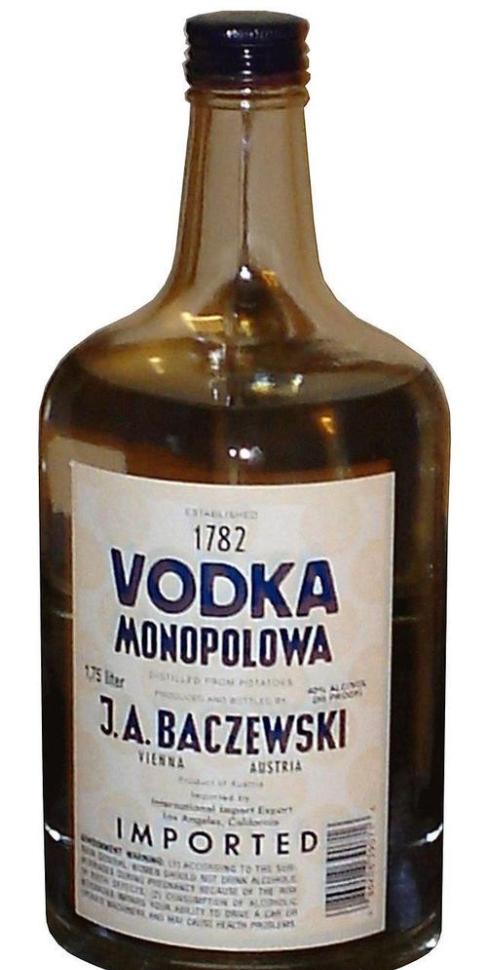
The most inseparable thing of the fighting nation Russia is vodka, vodka is a better nutrition than meat in the eyes of Russian farmers, is the water of life of Russians, and is also the most lasting driving force for the expansion of Tsarist Russia.
Vodka was a necessity for the Russian people, and in the 18th and 19th centuries the Russians brewed vodka three times faster than the population, and russia's military expenditure was also very dependent on vodka. As early as Ivan IV's expedition to the Principality of Kazan, the vodka special tax supported Russia's military expenditures. Peter the Great usually liked to drink wine instead of drinking water, and he also let people drink vodka with a 1.5-liter eagle cup at every turn, which was an authentic Russian drunkard. Peter the Great drank well, was able to win over the Cossacks by drinking, and during his tenure he monopolized vodka and defeated the Swedes with the taxes and diplomacy provided by vodka.
By the middle of the 18th century, the monopoly of vodka had become the consensus of the Russian monarchs, because the Russians were more tolerant of the liquor tax than the salt tax. Beginning in 1762, Tsarist Russia began to reduce the salt tax and vigorously implement the vodka monopoly system. This is the tax package system with Tsarist characteristics, and the local tycoons in Russia have to bid for moscow, Petersburg and the vodka monopoly in the provincial capitals in groups, and divide the vodka quota in each province (excluding the provincial capital). Their income from the sale of alcohol accounted for one-third of the Tsarist financial revenue, and the tsarist energy was indispensable to the continuous launch of the war vodka monopoly income. In the mid-19th century, Tsarist Russia was able to earn hundreds of millions of rubles a year from vodka trading, and the money czarist Russia grabbed from vodka monopolies far exceeded the Manchu salt tax. In 1847, the income from the Manchu salt tax was 7502579 taels of silver, and the annual salt tax income at the end of Guangxu was more than 24 million taels; in 1819, the income from the liquor monopoly in Tsarist Russia was as high as 43 million silver rubles, and in 1859, the tax payable by the Russian vodka tax collector was as high as 121 million silver rubles. After the abolition of the tax-inclusive system in Russia, the tax on the sale and purchase of vodka increased significantly, reaching 225 million silver rubles in 1881, equivalent to nearly 100 million taels of silver, which was four times the income from the salt tax at the same time.
Vodka gave Tsarist Russia a huge financial income, and also met the living and spiritual needs of everyone from noble lords to ordinary soldiers. The tradition of Tsarist Russia is that the nobility cannot directly talk about money and get involved in trading, so the Russian nobility cannot openly intervene in the vodka monopoly, only four of the more than 220 vodka monopoly tax collectors are nobles (in private, there are actually many), and the Tsarist Russian nobles prefer to let the local tycoons and profiteers honor themselves. The Russian aristocracy occupied the most land in the country, owned the most manors, and operated manor agriculture according to the tradition of the nobility, and their estates provided the most vodka into the monopoly field.
Tsarist soldiers lived in the countryside most of the time, worked like the farmers, and also regarded vodka as a nutritional product, and as soon as the Russian soldiers arrived on the battlefield, everyone drank vodka without money, and drank vodka to carry out the Ula charge. This tradition continued into the Soviet Union, where vodka was also a battlefield necessity for soldiers during the Great Patriotic War, and Soviet ace pilots, tank pilots, and snipers basically had a glorious history of fighting vodka.
The Napoleon family also had a great influence on vodka, when Napoleon expeditioned to Russia, the Russian tycoons advanced a lot of money in advance to the Tsarist government (generally pay one-fifth of the tax), Napoleon occupied a large amount of land in Tsarist Russia, but did not collect taxes through vodka, has been in a state of "loss". In that war, the Tsarist russian tycoons lost a total of more than 11 million rubles, accounting for half of the taxes they had paid that year. Napoleon's nephew Napoleon III, although he lost his uncle's face to the Germans, did well in the Crimean War, causing tsarist finances to lose money, which instead prompted tsarist Russia to carry out vodka monopoly reforms. The Russian people also fought many times because of vodka, in order to protest the shoddy of the profiteers, during the Crimean War, the Russian people launched a "strike" campaign, and also smashed state-run stores selling alcohol, so that the Russians had to send troops to suppress in eight provinces, and finally had to cancel the monopoly.
Because of the huge influence of vodka, politicians who dared to abstain from alcohol in Russian history were either special NB or special SB, and recently a guy who banned alcohol was named Gorbachev. So what is the real Russian traditional vodka? Don't look at the high degree, the most authentic alcohol 40 degrees, the Russian vodka monopoly for hundreds of years is the standard of 40 degrees.